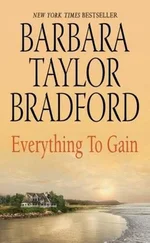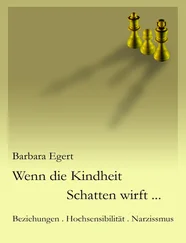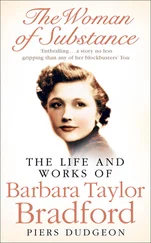‘Such ideas he has, this son of mine,’ murmured Abraham, shaking his head wonderingly, a hint of disbelief in his eyes.
Emma was vastly intrigued, as she always was at the mention of money and new ideas. ‘This man, this Herman Friend, where did he get such an idea? Tell me more about him, David.’
‘Who knows what gave him the idea,’ he said with a shrug. ‘But it was certainly an idea that worked. Anyway, Herman Friend had his own little workshop and was “making-up” for the John Barran factory, the first ready-made clothiers to start in Leeds after Singer invented the sewing machine. They’re the biggest, and also non-Jewish, by the way. Friend invented the method of the divisional labour system when he was an outside contractor for Barran’s, dividing the making of one single suit into five or six different operations. This immediately reduced the cost of producing ready-made suits and, as I said before, increased output. It also meant that Barran’s, and the other big clothiers who adopted the system, could sell the suits at cheaper prices. Volume was the key and it put the price of a suit within the reach of the working man. Friend started to give out work to other small Jewish tailoring shops and the whole idea just snowballed.’
Emma said, ‘A simple idea, but like so many simple ideas, it was very clever.’
David nodded his agreement, somewhat taken aback by this observation. He was even further surprised when Emma continued, ‘Like the Marks and Spencer Penny Bazaar in Leeds Market. Now that is also a brilliant idea. Putting all the goods in different sections, showing them off so everyone can see them easily, examine them, and help themselves. And pricing them so cheaply. Don’t you think that is clever, David?’
‘I certainly do!’ He smiled. ‘Did you know that Michael Marks is also a Jewish immigrant who came to Leeds from Poland? He started with that one stall in Leeds Market ten years ago. He recently went into partnership with Tom Spencer and now they have Penny Bazaars all over Leeds, and are expanding to other cities. They’ll be a national chain one day. You’ll see.’
Emma’s eyes were fixed on David, her mouth slightly open with amazement, excitement bringing a flush to her pale face. She was right. Leeds was the place to make a fortune. Now she said, ‘I believe anything is possible, if you have a good idea and are prepared to work hard.’
‘You’re absolutely correct, Emma,’ responded David. He launched into another success story, which Emma ate up.
David and Emma could have talked all night, for they were both bursting with ambition, drive, and, most surprisingly, had an incredible vision quite remarkable for their years; and they intuitively began to recognize this and were drawn to each other instinctively. But Abraham glanced at the clock at this precise moment and said, ‘I think it is time for you boys to escort Emma home. I am enjoying her company, too, but it is getting late and I do not like the idea of you being on the streets when the public houses are turning out. Dangerous, I think.’
‘Yes, I must be getting along,’ Emma said, pushing back her chair. ‘But first I must help Mrs Kallinski to clear the table and wash the dishes.’
‘No, no, that is not necessary, Emma. My husband is right. The boys must take you home immediately. David, don’t forget to write out the address of the workshop for Emma, and then you must leave,’ said Janessa.
Emma thanked the elder Kallinskis for their hospitality and the lovely dinner, and even more profusely for the job, which was so vital to her survival. She promised to be at the workshop on Monday morning at eight o’clock, and carefully tucked the paper into her handbag.
It was a relatively long walk back to Mrs Daniel’s house, but Emma felt safe, flanked on either side by the silent Victor and the voluble David. They did not run into any street gangs, and for Emma the time passed quickly with David chattering about all manner of things, but mostly about the tailoring trade. They insisted on taking her right to Mrs Daniel’s front door. In the gaslight from the streetlamp a few feet away, David and Victor were clearly illuminated. Emma looked from the solemn Victor to the laughing David and thought: They are so different but they are both very genuine. She gave her hand to Victor. ‘Thank you for bringing me home. Goodbye,’ she said.
Victor gripped her hand with firmness. ‘Good night, Emma. And thank you for helping Father. It was good of you.’
‘Yes, it was!’ exclaimed David, who now grasped her hand in his. ‘See you Monday morning, bright and early. Good night, Emma.’
They turned and began to walk away as she fitted the door key into the lock, but David stopped abruptly and ran back. ‘We think alike, Emma,’ he said, his voice vibrating confidently in the stillness. ‘I know we are going to be friends. Good friends.’
Emma’s face was serious and she believed him. She nodded. ‘I think so, too, David.’ He opened the door for her, and when she was safely inside he ran lightly down the steps and raced after Victor, who was waiting for him at the end of the street.
He was not aware of it then, but never had David Kallinski made a more prophetic pronouncement. They were indeed alike, for both were imbued with the will to succeed. And on that hot August night in 1905 a friendship had begun that was to last over half a century. Together they would climb, in their own individualistic ways, struggling up out of grim poverty, fighting all manner of prejudices, reaching for bigger and better things, and in their rising and their reaching they would carry the city with them. They would put their indelible imprint on Leeds, not only in their outstanding achievements as business magnates, but in their vast philanthropies. It was Emma Harte and David Kallinski, plus a handful of other conscientious, driven, and visionary Jews and Gentiles, who were to give birth to a city’s greatness.
The days slipped into weeks. August became September and then suddenly September had vanished. It was already the middle of October and Blackie had not returned to Leeds.
Emma constantly wondered what was detaining him in Ireland, worrying excessively when she was alone in the solitude of her little attic room, hoping he was not in some kind of trouble. She longed for Blackie to return because he was her closest friend and, although she was not aware of it, because he was associated with her past. Blackie O’Neill was the only emotional link to her background and so to her family, whom she loved and sorely missed. But essentially, the worry she periodically experienced was sincere concern for Blackie’s well-being, rather than her own, for she was not given to self-pity. And she was managing reasonably well by herself. She had her job at Kallinski’s tailoring shop and her room at Mrs Daniel’s house and, tentative and even tenuous as these were, they gave her a certain degree of security that was comforting.
The landlady, growing less fractious and more cordial every day, had announced unexpectedly that Emma could continue to rent the room indefinitely. It had not taken the sharp-eyed Mrs Daniel long to note that Emma was fastidious, honest, and quietly reserved. She kept to herself, merely nodding politely to the two gentlemen boarders when she ran into them in the hall, moving swiftly upstairs to her own room in well-bred dignity. She was not a troublemaker, Gertrude Daniel had decided, and had told Emma, ‘Yer can stay as long as yer want ter, lass. Yer no bother. None at all,’ and with this utterance Mrs Daniel’s dour face had broken into a beaming smile and she had patted Emma’s arm almost affectionately.
Emma was earning enough money at Kallinski’s to keep herself adequately and, most importantly, without having to dip into her precious savings. She was careful with her money to a point of frugality, spending it only for necessities, walking everywhere even when she was dropping from exhaustion and tempted to take a tram-car. But thrifty as she was, she did buy nourishing food. She was sensible enough to recognize she must fortify her strength and preserve her energy at all costs. If she neglected herself she might easily get sick and be unable to work, a thought that filled her with dread. There was the baby to think about, after all.
Читать дальше
Конец ознакомительного отрывка
Купить книгу












